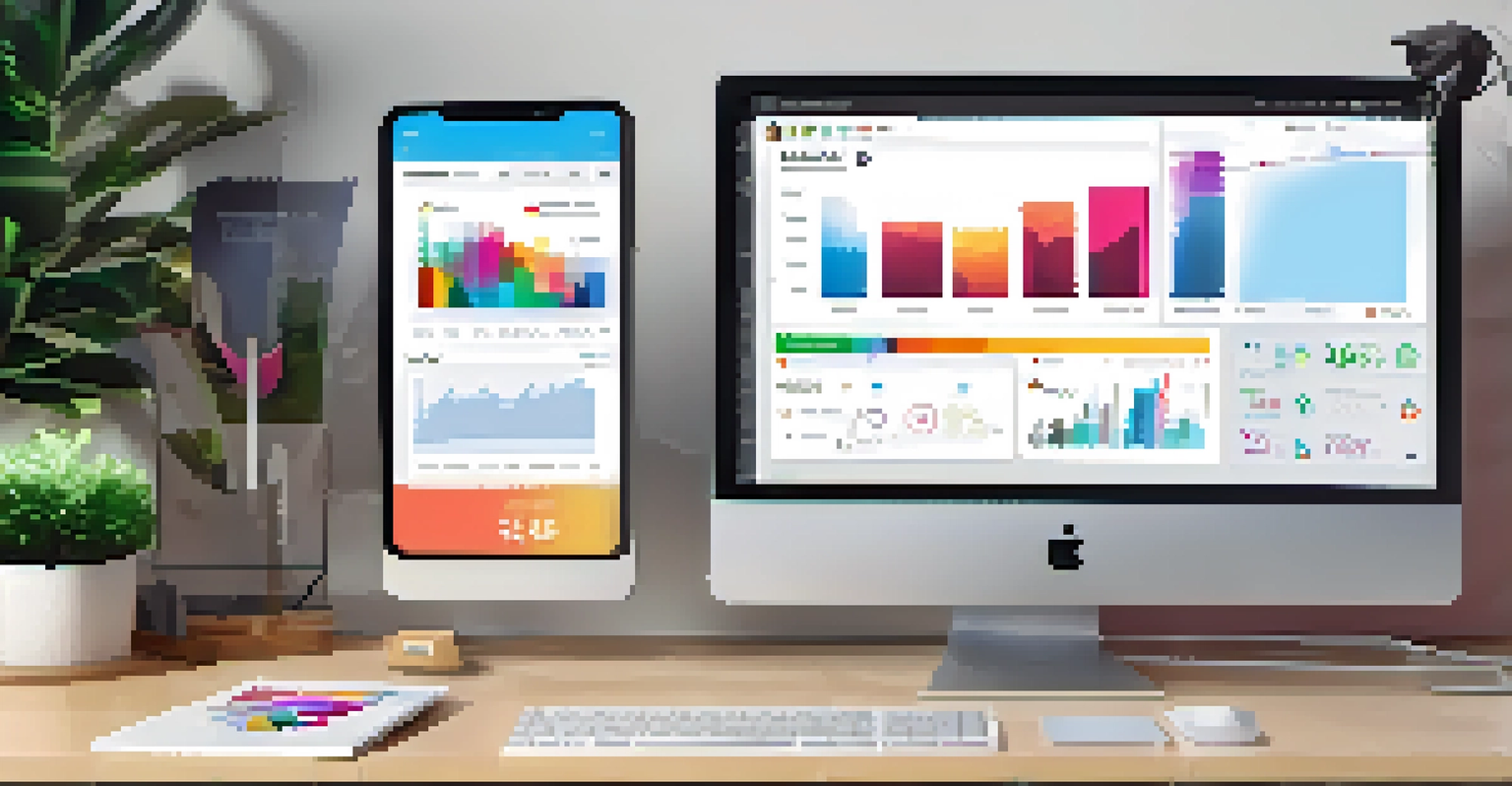Digital Content Monetization: Earning from Your Creations

Understanding Digital Content Monetization Basics
Digital content monetization refers to the various methods creators use to earn money from their online content. This can include anything from blogs and podcasts to videos and social media posts. The primary goal is to turn your creativity into a sustainable income stream.
Content is king, but engagement is queen, and the lady rules the house!
As more people consume content online, the opportunities for monetization have expanded significantly. Whether you’re a seasoned creator or just starting, understanding the basics sets the foundation for your earning journey. It's like learning to ride a bike; once you grasp the fundamentals, you can explore different paths.
Ultimately, the key to successful monetization is finding the right strategy that aligns with your content and audience. Just like a chef tailors their recipes to suit the tastes of their diners, creators should adapt their approach based on who they are serving.
Identifying Your Target Audience for Better Engagement
Knowing your target audience is crucial in digital content monetization. It’s about understanding who enjoys your content and what they value. By identifying your audience, you can tailor your content to meet their needs, making your offerings more appealing.

For instance, if your audience consists of young professionals interested in personal finance, creating content that addresses budgeting tips would resonate well. Think of it as throwing a party; you wouldn’t serve a gourmet meal to a crowd expecting pizza. Knowing your audience helps you serve what they want.
Monetization Starts with Audience Insight
Understanding your target audience is crucial for tailoring content that resonates and drives engagement.
Once you have a clear picture of your audience, you can engage with them more effectively. This could lead to increased loyalty, more shares, and ultimately, better monetization opportunities. It’s about building relationships that go beyond just numbers.
Exploring Different Monetization Strategies
There are numerous monetization strategies available for digital creators. Common methods include affiliate marketing, ad revenue, subscription models, and selling digital products. Each of these strategies has its own pros and cons, so it’s essential to explore what works best for your content.
Your brand is a story unfolding across all customer touch points.
For example, if you run a blog, affiliate marketing can be a great way to earn while providing value. You recommend products or services you trust and earn a commission on sales generated through your links. It’s like being a trusted friend who shares good recommendations.
Conversely, if you produce video content, ad revenue from platforms like YouTube might be your best bet. Combining several strategies can also maximize your earnings, much like diversifying your investment portfolio to spread risk and increase potential returns.
Leveraging Social Media for Monetization Success
Social media platforms are powerful tools for monetizing digital content. With billions of users worldwide, these platforms can help you reach a larger audience without significant upfront investment. By sharing your content on social media, you increase visibility and engagement.
For example, Instagram influencers often use their platforms to promote products and services. By building a strong following, they can negotiate sponsorship deals that generate income. Think of social media as a stage where you can showcase your talent to a vast audience.
Diverse Strategies Boost Earnings
Exploring various monetization strategies, such as affiliate marketing and ad revenue, can maximize your income potential.
Additionally, social media can foster a sense of community around your content. Engaging with your audience through comments, live sessions, and stories can build loyalty, making them more likely to support your monetization efforts. It’s about creating a space where your audience feels connected to you.
Creating Valuable Content that Sells
At the heart of successful digital content monetization is valuable content. This means producing content that informs, entertains, or solves problems for your audience. When your content delivers real value, it naturally attracts more viewers and potential customers.
For instance, a fitness coach sharing workout routines and nutrition tips can build a loyal following. When followers see results, they are more likely to purchase additional resources, such as online courses or eBooks. It’s like giving away free samples at a market; once people see the quality, they’re more likely to buy.
Ultimately, the more value you provide, the more likely your audience will support your monetization efforts. Focus on quality over quantity, and you’ll create a loyal following that’s willing to invest in your offerings.
Building a Strong Personal Brand Online
A strong personal brand can significantly enhance your digital content monetization efforts. Your brand represents who you are, what you stand for, and how you connect with your audience. A well-defined brand can differentiate you from others in your niche and build trust.
For instance, think about how certain influencers have become synonymous with specific lifestyles or products. Their personal brand resonates with their audience, leading to higher engagement and monetization opportunities. It’s similar to how a well-known chef has their signature dish that keeps customers coming back.
Valuable Content Fuels Loyalty
Creating content that genuinely provides value to your audience increases their likelihood of supporting your monetization efforts.
To build your brand, focus on consistency in your messaging, visuals, and content. This consistency helps your audience recognize and relate to you, making them more likely to support your monetization efforts. It’s about creating a memorable experience that keeps them engaged.
Analyzing Performance and Adjusting Your Strategy
Regularly analyzing your content performance is essential for successful monetization. By tracking metrics like engagement, views, and conversion rates, you can gain insights into what works and what doesn’t. This data empowers you to make informed decisions about your strategy.
For example, if you notice that video content garners more views than blog posts, you might want to focus more on creating videos. It’s like adjusting your sails based on the wind direction; understanding where the momentum lies helps you navigate more effectively.

Additionally, don’t be afraid to experiment with different types of content or monetization methods. The digital landscape is always evolving, and staying adaptable can lead to new opportunities. Embracing change is key to long-term success in digital content monetization.